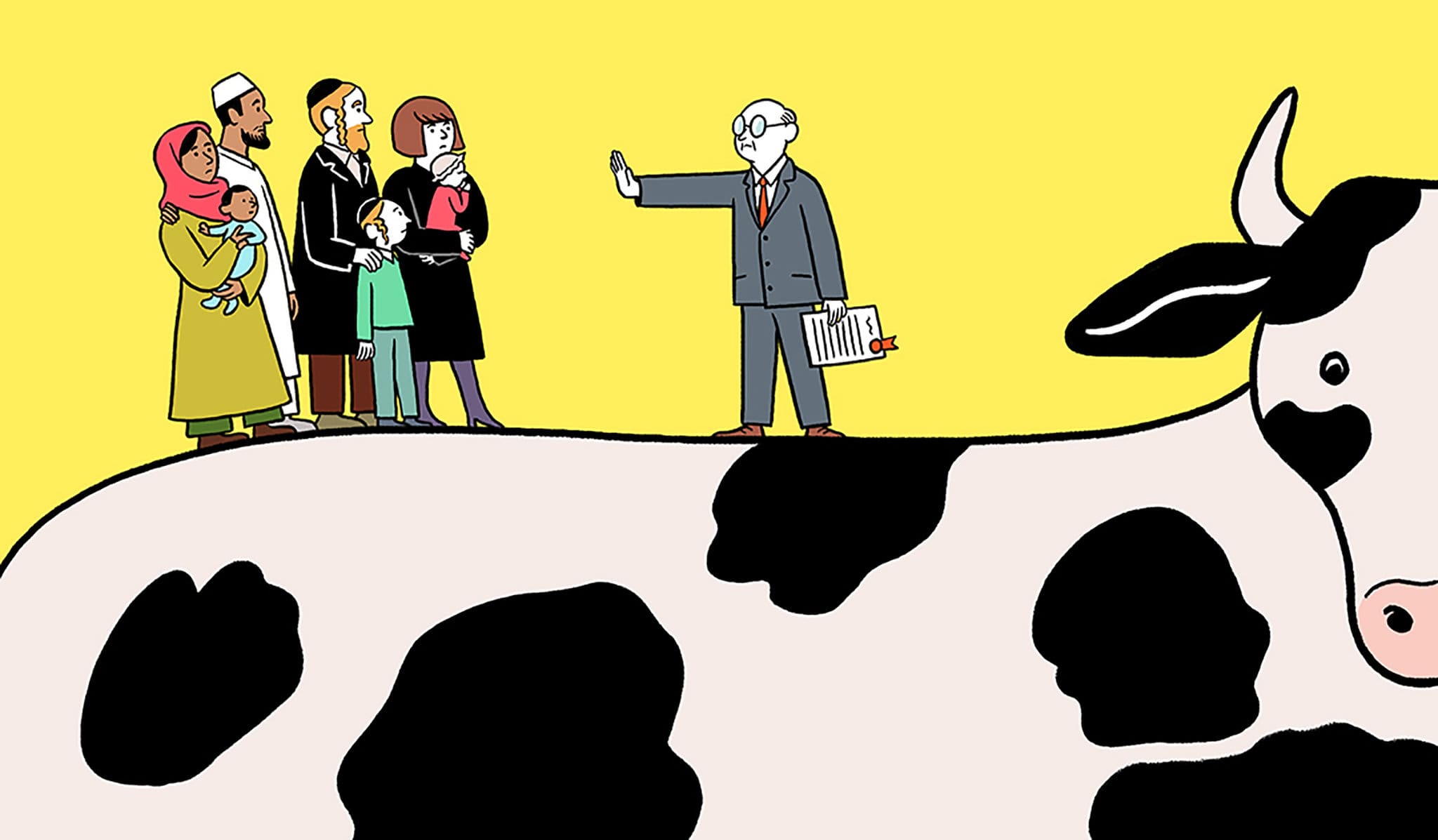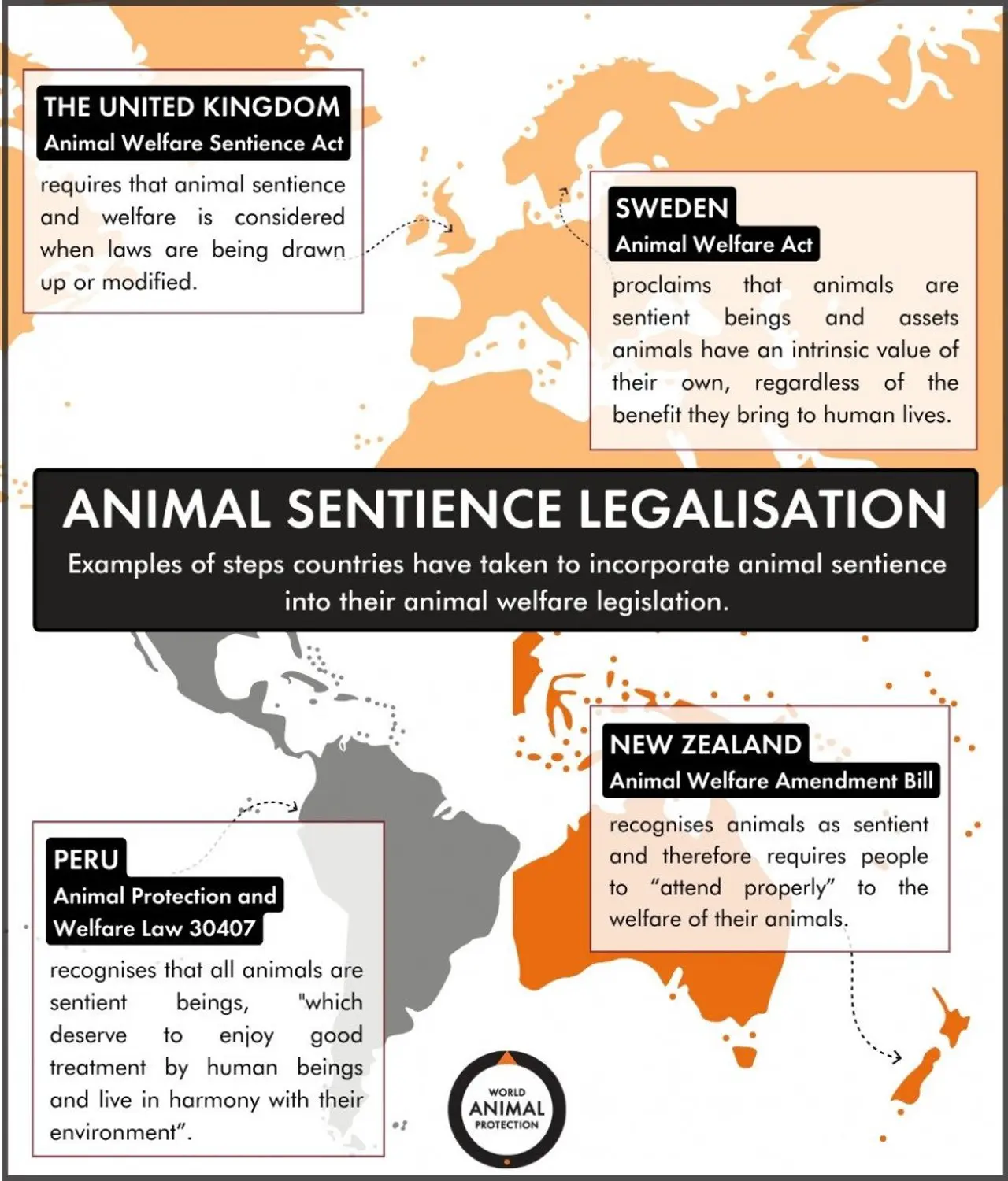Cultural beliefs play a pivotal role in shaping attitudes towards animal rights, influencing how societies view and treat animals across the globe. From religious practices to historical traditions, economic pressures to political ideologies, these deeply rooted values determine whether animals are regarded as sentient beings deserving of compassion or as commodities for human use. Geographic location and media portrayal further mould public opinion, while education emerges as a powerful tool to challenge outdated norms and inspire empathy. By examining the intricate interplay between culture and animal welfare, we can uncover pathways toward fostering more ethical treatment of animals and promoting global compassion for all living beings
Animal rights is a topic that has sparked heated debates and discussions in recent years. From the treatment of livestock in factory farms to the use of animals for entertainment and cosmetic testing, the way humans interact with and perceive these beings has become a highly contentious issue. While there are laws and regulations in place to protect animals, the cultural beliefs and attitudes of a society can play a significant role in determining the level of concern and action towards animal welfare. In this article, we will delve deeper into the complex relationship between cultural beliefs and attitudes towards animal rights. We will explore how different cultures around the world have varying perspectives on the value and treatment of animals, and how these beliefs have influenced their attitudes and actions towards animal welfare. Additionally, we will discuss the impact of these attitudes on animal rights movements and the implications for creating a more humane world for all living beings. By examining the intersection of culture and animal rights, we can gain a better understanding of the factors that shape our perceptions and behaviors towards animals and work towards creating a more compassionate and just society for all.

Cultural beliefs shape attitudes towards animal rights
Cultural beliefs play a significant role in shaping attitudes towards animal rights. In many cultures, animals are viewed as resources or commodities rather than sentient beings deserving of rights and protection. This perception is often deeply ingrained in societal norms, traditions, and religious beliefs. For example, in some cultures, animals may be used for entertainment purposes, such as bullfighting or cockfighting, which are seen as a form of cultural heritage. In contrast, other cultures prioritize the ethical treatment of animals and advocate for their rights, viewing them as sentient beings with intrinsic value. These cultural differences significantly impact the level of importance given to animal rights, the laws and regulations in place to protect them, and the societal attitudes towards animal welfare. Understanding and addressing these cultural beliefs are essential in promoting a more compassionate and inclusive approach towards animal rights globally.
Religion plays a role, too
Within the complex tapestry of cultural beliefs that influence attitudes towards animal rights, religion plays a significant role as well. Religious teachings and scriptures often shape how individuals and communities perceive the value and treatment of animals. For instance, in some religious traditions, animals may be considered sacred or have a specific role in religious rituals and practices. This reverence for animals can result in stricter guidelines for their treatment and protection. Conversely, in other religious beliefs, animals may be seen as subservient to humans and therefore subject to exploitation. Understanding the interplay between religion and cultural beliefs is crucial in fostering dialogue and promoting a more inclusive and compassionate approach to animal rights. By acknowledging and respecting diverse religious perspectives, we can work towards creating a more harmonious relationship between humans and animals within our global society.

Economic factors can influence opinions
Economic factors can significantly influence opinions when it comes to attitudes towards animal rights. Socioeconomic status, job security, and access to resources can all shape individuals’ perspectives on the importance of animal welfare. For example, in economically disadvantaged communities, where basic survival needs may take precedence, concerns about animal rights may be perceived as a luxury or secondary issue. On the other hand, individuals in more affluent communities may have the means to prioritize animal rights and invest in initiatives that promote ethical treatment. Additionally, economic factors can also impact industries that rely on animal exploitation, such as factory farming or circuses, leading to vested interests that can shape public opinion and policy decisions. Recognizing the influence of economic factors on attitudes towards animal rights is vital in understanding the complexities of this issue and working towards creating a more equitable and compassionate society for all beings.
Historical traditions affect viewpoints
Historical traditions play a significant role in shaping viewpoints when it comes to attitudes towards animal rights. Cultural beliefs and practices that have been passed down through generations can deeply influence how individuals perceive and interact with animals. For example, in certain cultures with a long history of livestock farming, there may be a prevailing belief that animals exist solely for human use and consumption. This cultural tradition can create a mindset that prioritizes economic gain and agricultural practices over the ethical treatment of animals. Similarly, cultural rituals or traditions that involve the use of animals for entertainment or religious purposes can normalize the exploitation of animals and shape attitudes towards their rights. Understanding the impact of historical traditions on viewpoints is crucial in addressing the complexities of animal rights issues and promoting more compassionate and sustainable practices.
Social norms impact treatment of animals
Social norms play a significant role in influencing the treatment of animals within a society. These norms are a set of unwritten rules that guide individuals’ behavior and shape their attitudes towards animals. For instance, in cultures where animal welfare is highly valued and animals are seen as sentient beings deserving of care and respect, there tends to be stricter regulations and laws in place to protect their rights. On the other hand, in societies where animals are viewed primarily as commodities or resources, their treatment may be less prioritized. These social norms can perpetuate practices such as factory farming, animal exploitation for entertainment, or the use of animals in scientific experiments. Challenging and transforming these norms is crucial in creating a more compassionate and ethical approach to animal rights, where the well-being and dignity of animals are esteemed alongside human interests.

Education can change perceptions
Education plays a pivotal role in challenging and transforming cultural beliefs that influence attitudes towards animal rights. By providing individuals with knowledge about the sentience and inherent value of animals, education has the power to change perceptions and foster empathy towards our fellow beings. Through educational initiatives, individuals can learn about the ethical implications of practices such as factory farming, animal testing, and animal exploitation for entertainment. By understanding the impact of these actions on the well-being and rights of animals, people are more likely to question and reevaluate their own beliefs and behaviors. Education also empowers individuals to advocate for change, whether it be supporting animal welfare organizations, promoting legislation to protect animals, or making informed choices in their own consumption habits. Ultimately, education serves as a catalyst for a cultural shift towards a more compassionate and just society, where the rights and well-being of animals are valued and respected.
Media portrayal influences public opinion
Media, as a powerful tool of communication, holds the ability to shape and influence public opinion. The portrayal of issues related to animal rights in various forms of media, including news articles, documentaries, and social media platforms, plays a significant role in shaping societal attitudes and beliefs towards this matter. The media has the ability to highlight and bring attention to instances of animal cruelty, exposing the public to the realities of animal exploitation and prompting discussions on the ethical treatment of animals. Additionally, media coverage can influence public perception by framing the narrative surrounding animal rights issues, presenting different perspectives, and promoting certain values or ideologies. Consequently, the way in which animal rights are depicted in the media can have a profound impact on shaping cultural beliefs and attitudes towards this important cause.
Geographic location shapes attitudes
The importance of geographic location in shaping attitudes towards animal rights should not be overlooked. Different regions of the world possess unique cultural beliefs, values, and practices which inherently influence how individuals perceive and prioritize animal welfare. For example, in some Eastern cultures, such as India and parts of Southeast Asia, animals are often regarded with reverence and are integral to religious and spiritual practices. This cultural emphasis on compassion and respect for all living beings can result in a more favorable attitude towards animal rights. Conversely, in regions where animal agriculture is a prominent industry, such as parts of Europe and North America, attitudes towards animal rights may be more influenced by economic factors and traditional practices that prioritize human welfare over that of animals. By recognizing the impact of geographic location on attitudes towards animal rights, we can better understand and address the diverse perspectives and challenges that exist across different cultures and regions.
Political ideologies impact animal policies
Political ideologies play a significant role in shaping animal policies within a society. Different ideological perspectives, such as conservatism, liberalism, or socialism, have varying views on the moral status and treatment of animals. For instance, conservative ideologies often prioritize economic interests and individual freedoms, which can lead to less stringent regulations on animal welfare in industries such as factory farming. On the other hand, liberal ideologies tend to emphasize social justice and equality, which may result in more progressive animal rights policies and advocacy for animal protection. Understanding how political ideologies impact animal policies is crucial in addressing and influencing the development of comprehensive and ethical legislation and regulations that ensure the well-being of animals in our society.
Globalization affects cultural perspectives
As globalization continues to reshape the world, it inevitably influences cultural perspectives on various issues, including attitudes towards animal rights. The interconnectedness of countries and the exchange of ideas, values, and practices have led to the diffusion of different cultural beliefs surrounding the treatment and rights of animals. For example, in cultures where animals are considered sacred or have deep spiritual significance, there may be a strong emphasis on protecting and respecting their welfare. Conversely, in societies where economic efficiency and productivity are prioritized, there may be a tendency to view animals primarily as resources for human consumption or economic gain. Globalization creates opportunities for cultural exchange and the challenging of traditional beliefs, which can lead to shifts in attitudes towards animal rights as societies become more interconnected and exposed to diverse perspectives. This highlights the importance of recognizing and understanding the impact of globalization on cultural perspectives as we navigate the complex landscape of animal rights advocacy and policy development.
In conclusion, it is evident that cultural beliefs play a significant role in shaping attitudes towards animal rights. While some cultures may prioritize the protection and ethical treatment of animals, others may view them as inferior beings and treat them accordingly. It is important for us to recognize and understand these cultural differences in order to promote a more inclusive and compassionate approach towards animal rights. Only by acknowledging and respecting diverse cultural beliefs can we work towards creating a more equitable and ethical world for all beings, both human and non-human. Let us strive to bridge the gap and promote a more harmonious coexistence between humans and animals.
https://youtu.be/ORj9oE-ngK8
FAQ
How do cultural beliefs and values impact attitudes towards animal rights?
Cultural beliefs and values play a significant role in shaping attitudes towards animal rights. In some cultures, animals may be considered sacred or have symbolic meanings, leading to a strong emphasis on their protection and welfare. Conversely, in cultures where animals are primarily seen as resources or for consumption, attitudes towards animal rights may be more dismissive or even opposed. Additionally, cultural beliefs about the hierarchy of species and the role of humans in relation to animals can influence the importance placed on their rights and treatment. Overall, cultural beliefs and values heavily influence attitudes towards animal rights, determining the level of concern and support for their ethical treatment.
Are there any cultural beliefs that prioritize human interests over animal rights?
Yes, there are many cultural beliefs that prioritize human interests over animal rights. This can be seen in various cultural practices, religious beliefs, and societal norms where animals are often considered as resources for human use, such as for food, clothing, or experimentation. These beliefs prioritize human needs and desires over the rights and welfare of animals. However, it is important to note that there are also cultures and individuals who prioritize animal rights and advocate for their ethical treatment and protection.
How do cultural beliefs vary across different regions or countries in terms of animal rights?
Cultural beliefs regarding animal rights vary across different regions and countries. In some places, animals may be highly valued and protected, with strong laws and regulations in place to ensure their welfare. These cultures often emphasize the interconnectedness and interdependence of humans and animals. However, in other regions, animals may be seen primarily as resources for human use, with fewer protections and regulations. Cultural, religious, and historical factors play a significant role in shaping these beliefs, resulting in a wide range of attitudes and practices towards animal rights worldwide.
Can cultural beliefs be changed or influenced to promote more positive attitudes towards animal rights?
Yes, cultural beliefs can be changed or influenced to promote more positive attitudes towards animal rights. This can be achieved through education, awareness campaigns, and legislation that emphasize the importance of treating animals with compassion and respect. By highlighting the ethical, environmental, and health implications of animal exploitation, individuals and societies can be encouraged to reevaluate their cultural beliefs and make more informed choices that prioritize animal welfare. Additionally, the influence of social media and popular culture can play a significant role in shaping cultural attitudes towards animal rights, as they have the power to amplify messages and promote positive change.
What role does education and awareness play in shaping cultural beliefs and attitudes towards animal rights?
Education and awareness play a crucial role in shaping cultural beliefs and attitudes towards animal rights. By educating individuals about the ethical treatment of animals and the impact of their actions on animal welfare, it fosters a sense of empathy and understanding. It helps people recognize that animals have intrinsic value and deserve to be treated with compassion and respect. Additionally, increasing awareness about the cruel practices in industries such as factory farming or animal testing can lead to a shift in cultural norms and attitudes towards supporting animal rights. Education and awareness campaigns are essential in influencing societal change and promoting a more compassionate relationship with animals.



